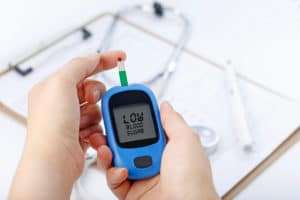Artificial sweeteners are everywhere hidden in diet sodas, sugar-free snacks, “health” drinks, and even chewing gum. Marketed as guilt-free indulgences, they promise weight loss without sacrificing taste.
But what if I told you these sugar substitutes might be doing more harm than good, particularly to your brain?
More and more research is hinting that diet sodas might do more than just save calories; they might hurt your brain.
In this blog, we’ll explore what’s inside your favorite diet drink, how it could be messing with your brain, and what smarter swaps you can make.
Is your diet cola making you dumb? Read to find the answer.
Table of Contents
ToggleUnderstanding the Sweet Lie
Diet sodas became popular because they promised sweetness without calories. That’s how the zero-calorie trend began.
Today, over 25% of U.S. adults consume diet drinks daily, according to the CDC. These drinks became “healthier” choices compared to sugary sodas. But the sweet taste comes with a cost, and your brain might be paying the price.
So, is your diet cola making you dumb? Let’s unpack the can.
Many patients I see believe that switching from regular soda to diet cola is a smart move. The logic seems sound: fewer calories, zero sugar, better for weight control.
But when you start connecting the dots—digestive issues, mood swings, brain fog, forgetfulness, and even early signs of cognitive decline, the pattern becomes alarmingly clear.
Numerous studies have now linked diet cola consumption to increased risk of stroke, Alzheimer and dementia.
What’s Really Inside a Can of Diet Cola?
Diet sodas don’t contain regular sugar. Instead, they use artificial sweeteners and chemical additives. These are designed to trick your taste buds.
Common Ingredients in Diet Sodas
Below is a breakdown of the usual chemicals found in diet cola and what they do:
| Ingredient | What It Does | Possible Brain Effect |
|---|---|---|
| Aspartame | Artificial sweetener, 200x sweeter than sugar | Linked to memory loss & anxiety |
| Sucralose | Another sweetener, non-caloric | May affect learning in animals |
| Acesulfame Potassium | Used to boost sweetness | May disrupt brain-gut link |
| Phosphoric Acid | Gives soda its tangy bite | Can affect calcium and brain cells |
| Caffeine | Stimulates the brain | Can cause jitteriness and crashes |
These ingredients aim to satisfy your craving without sugar, but are they safe for your brain?
4 Ways Artificial Sweeteners Are Silently Stealing Your Brainpower
1. They Make You Forgetful

The main culprit here is aspartame, one of the most commonly used artificial sweeteners. While it’s marketed as “safe,” aspartame has been shown to overstimulate neurons. Over time, this overactivity leads to neuron fatigue, damage, and even cell death.
Simply put, aspartame acts like a slow neurotoxin. It wears down the brain, affecting your memory, learning, and mental clarity. Long-term use has been associated with symptoms that mimic early-stage dementia.
2. They Elevate Insulin Levels Chronically

Many people don’t realize that even without real sugar, sweeteners can trick your body into releasing insulin. Over time, this leads to insulin resistance, a condition strongly associated with type 2 diabetes, obesity, heart disease, and, yes, cognitive decline.
Research shows that people with chronically elevated insulin are at higher risk for Alzheimer’s disease. What starts as brain fog or forgetfulness may, in the long run, lead to far more serious consequences.
3. They Slow Down Your Metabolism

Contrary to popular belief, artificial sweeteners may actually contribute to weight gain . Multiple animal studies have shown that rodents fed artificial sweeteners had slower metabolic rates and gained more weight than those fed sugar even when they consumed fewer calories .
Why? These fake sugars confuse the body’s natural metabolic signals. Your body anticipates sugar, doesn’t get it, and adjusts in unhealthy ways. The result: metabolic slowdown and increased fat storage.
We know that both diabetes and obesity are significant risk factors for memory issues and various forms of dementia .
4. They Disrupt Gut Health

Your gut isn’t just about digestion; it’s also your second brain. And when your gut bacteria are out of balance, everything from mood to immunity to memory can be affected.
Artificial sweeteners like aspartame, sucralose, saccharin, and acesulfame potassium have been shown to disrupt gut flora, leading to problems like
A leaky gut allows toxins to enter the bloodstream, triggering chronic inflammation, which has been directly linked to Alzheimer’s and other neurodegenerative diseases.
Diet Soda vs. Regular Soda—Which is Worse?
People ask, “Is diet coke bad for you?” Let’s compare diet and regular sodas.
| Feature | Diet Soda | Regular Soda |
| Sweetener | Artificial (e.g., aspartame, sucralose) | Sugar (high fructose corn syrup) |
| Calories | 0 | 150+ per can |
| Brain Impact | Affects memory, mood, focus | Blood sugar spikes, mood swings |
| Long-Term Risk | Possible link to dementia and stroke | Obesity, diabetes, and brain fog |
While both have risks, diet soda’s link to aspartame and cognitive decline is drawing more concern in medical studies.
So, What Should You Drink Instead?
If you’re trying to avoid sugar (which you should) but don’t want to poison your brain, here are two safer alternatives:
1. Erythritol
A naturally occurring sugar alcohol, erythritol contains zero calories and doesn’t cause a blood sugar spike. It’s also less likely to cause bloating or digestive discomfort compared to other sugar alcohols like xylitol or sorbitol.
Still, moderation is key. Consuming large amounts of sugar alcohols may lead to GI distress.
2. Stevia
Extracted from the stevia plant, this natural sweetener is 200–300 times sweeter than sugar but doesn’t affect blood sugar or insulin levels. Some studies even suggest stevia may help stabilize blood sugar, though more research is needed.
Important Note: If you’re on medication for blood pressure or diabetes, consult your doctor before incorporating stevia regularly, as it may interact with your meds.
Is Your Diet Cola Making You Dumb? A Doctor’s Verdict
So is your diet cola making you dumb?
The evidence is clear: regular consumption of diet soda could hurt your brain. While having one once in a while may be okay, daily intake is risky.
- Diet sodas are linked to diet drinks and dementia.
- They may affect the gut-brain connection and brain signaling.
- Artificial sweeteners show ties to neurotoxicity of aspartame and memory loss.
So, is your diet cola making you dumb? If you drink it every day, the answer might be yes.
Evaluate your habits and protect your brain. Your mind deserves better.
Dr. Chugh’s Closing Advice on Diet Soda
Your brain is your most valuable organ. Don’t trade it for a can of fizz. If you experience brain fog, memory issues, or slow thinking, cutting back on diet soda could help.
Concerned? Book a consultation with Dr. Chandril Chugh to discuss your brain health. Don’t wait until symptoms get worse. Let’s build a plan that supports both your brain and your body.
FAQs
Is your diet cola making you dumb?
Artificial sweeteners in diet cola, like aspartame, may harm brain health over time. Studies suggest they can contribute to memory loss, brain fog, and even cognitive decline by overstimulating neurons and disrupting gut health.
How many diet sodas per day is too much?
Even one can a day may pose risks. Research shows that drinking diet soda daily could increase chances of stroke and dementia. Try cutting down to a few per week.
Can diet soda make anxiety or depression worse?
Yes. Artificial sweeteners may interfere with dopamine and serotonin, worsening mood. If you struggle with mental health, avoid diet sodas. Book a visit with Dr. Chugh if symptoms persist.
How long does it take to feel better after quitting diet cola?
Most people feel clearer and more energetic within 1–2 weeks of quitting. Your brain needs time to reset.
Are there any safe zero-calorie drinks?
Yes. Try unsweetened sparkling water, herbal teas, or fruit-infused water. These support your brain without fake sweeteners.
How do artificial sweeteners affect brain function?
Artificial sweeteners can overstimulate neurons, leading to fatigue and long-term damage. They’re linked to symptoms like forgetfulness, slower thinking and may increase the risk of dementia.
Can drinking diet cola lead to cognitive decline?
Yes. Research indicates that regular consumption of diet cola is associated with increased risks of stroke, Alzheimer’s disease, and cognitive impairment due to the effects of sweeteners on the brain and insulin response.
Are there safer alternatives to artificial sweeteners?
Yes. Natural sweeteners like erythritol and stevia are better alternatives. They don’t spike blood sugar or insulin levels and are less likely to cause brain or gut issues when used moderately.
About The Author

Medically reviewed by Dr. Chandril Chugh, MD, DM (Neurology)
Dr. Chandril Chugh is a U.S.-trained, board-certified neurologist with expertise in diagnosing and managing neurological disorders, including migraines, epilepsy, Parkinson’s disease, and movement disorders. His clinical focus includes evidence-based neurological care and patient education.
All content is reviewed for medical accuracy and aligned with current neurological guidelines.




